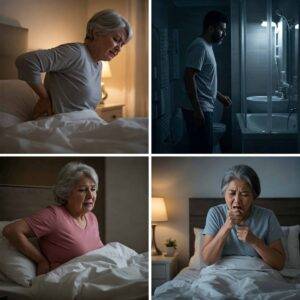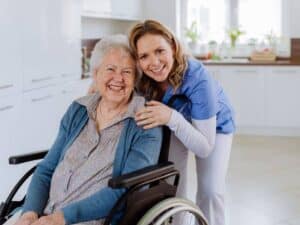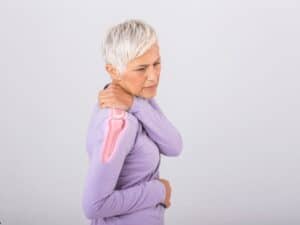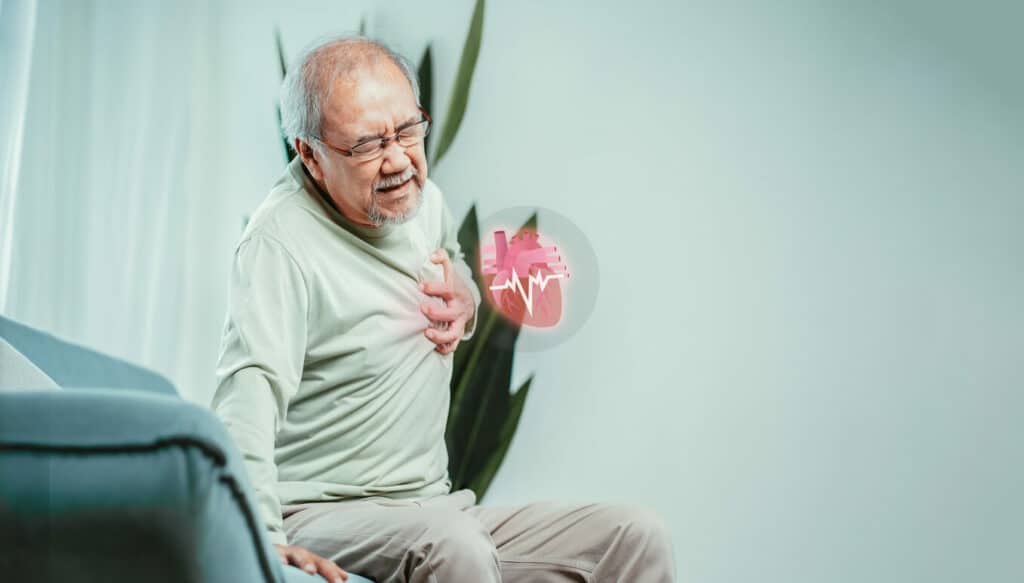
Have you ever been in a situation where you wondered if someone was having a heart attack, but you weren’t sure what to look for? Perhaps you’ve seen in the movies when people clutch their chests and fall to the ground while having a heart attack, but you’re not quite sure if that’s exactly what a heart attack looks like.
A heart attack is not always as obvious as a person clutching their chest. It can present itself in a variety of ways. In this blog, we’ll explore different signs and symptoms of a heart attack, particularly the silent and rare ones.
So, whether you’re concerned about your heart health, that of your elderly loved one, or simply curious, keep reading to find out what a heart attack really looks like.
What Is a Heart Attack?
A heart attack occurs when a part of the heart’s muscle doesn’t get enough blood supply leading to damage or death of the tissue. It is also called Myocardial Infarction (MI).
This reduced or hindered blood supply can be due to a complete, partial blockage or spasm of the coronary artery, exceeding the demand for blood by the heart tissue, or other underlying causes.
A heart attack is a common health issue worldwide, can occur at any age, even in healthy people, and can affect men and women alike. However, the risk increases as people get older due to changes in their heart and overall cardiovascular system. The average age of first heart attack in males and females is 65 and 72 respectively. It is less common in younger adults.
Common causes that contribute to the occurrence of a heart attack include:
- Deposition of fat on the walls of coronary arteries
- Hardening of coronary arteries
- Thickening of walls of the heart
- Weakening of heart valves
- Changes in the electrical system (arrhythmias)
- Increased sensitivity to salt (sodium) with age
Risk factors for heart attack includes age, family history of heart disease, hypertension, high cholesterol levels, smoking, diabetes mellitus, obesity, physical inactivity, and stress.
Common Signs and Symptoms of a Heart Attack
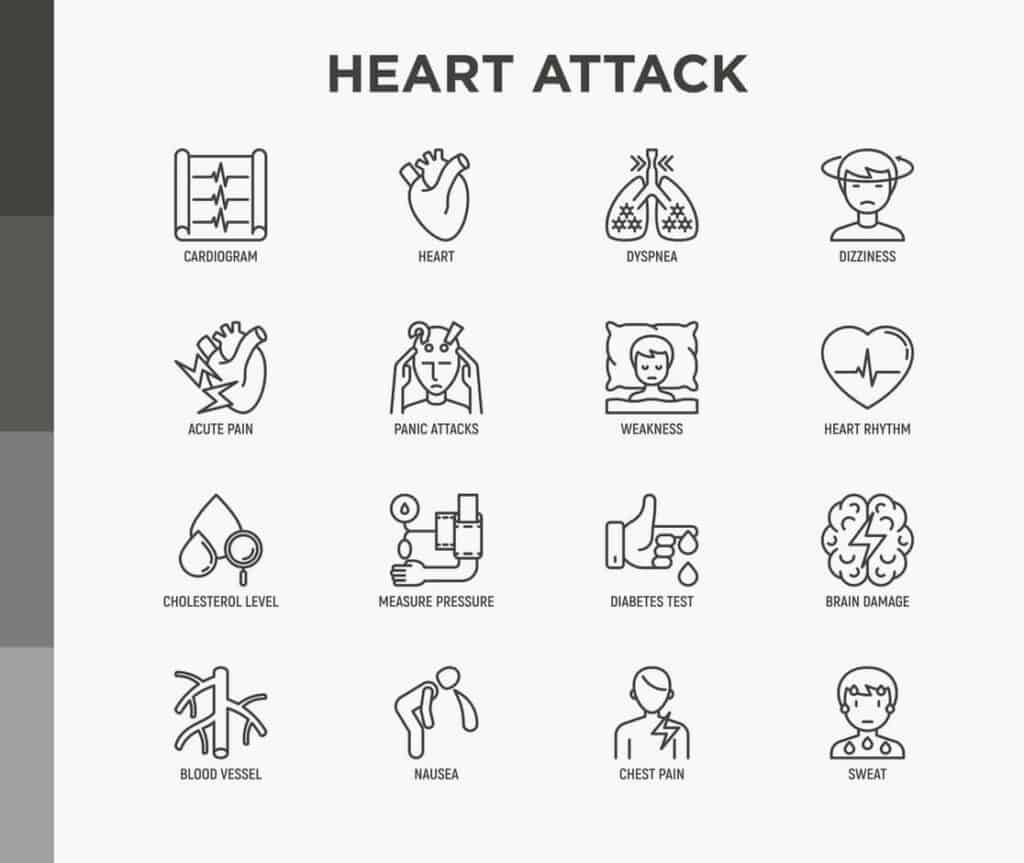
Although symptoms may vary from person to person, some common signs and symptoms of a heart attack include the following:
- Chest pain or discomfort that may feel like throbbing, pressure, tightness, aching, squeezing, or burning sensation in the chest (this is a very common symptom)
- Pain or discomfort that may radiate to other parts of the body, such as the arms, back, neck, jaw, or stomach
- Shortness of breath is common in older adults
- Palpitations
- Irregular heartbeat
- Sweating/Cold sweats
- Dizziness
- Confusion
- Lightheadedness
- Unconsciousness
If you experience any of these symptoms, it’s important to seek treatment right away. Time is of the essence, and the quicker you receive medical attention, the better your chances of surviving a heart attack.
However, in some cases, it’s possible that a heart attack presents no signs. So, you should monitor your vitals or those of your loved ones and get regular checkups from your doctor.
5 Silent Signs and Symptoms of a Heart Attack

It’s not always that a heart attack is clearly manifested as pain in the chest, discomfort, or breathlessness.
It can have uncommon, minimal, or no symptoms at all. In such cases, a heart attack goes unnoticed and the person doesn’t get the medical attention that could possibly save their life.
Here is a list of 5 silent signs and symptoms of heart attack that are not commonly known and remain unrecognized.
- Unexplained indigestion, nausea, vomiting
- ‘Muscle strain’ in the chest or upper back
- Pain in jaw and teeth
- Sudden anxiety and severe fatigue
- Flu-like symptoms
A person might be having a sharp pain in their jaw during a heart attack, yet has no clue that it could be a heart attack. Hence, it is important to learn about and understand these uncommon signs and symptoms of heart attack to save yourself or your loved one before it’s too late.
What Different Types of Heart Attack Looks Like
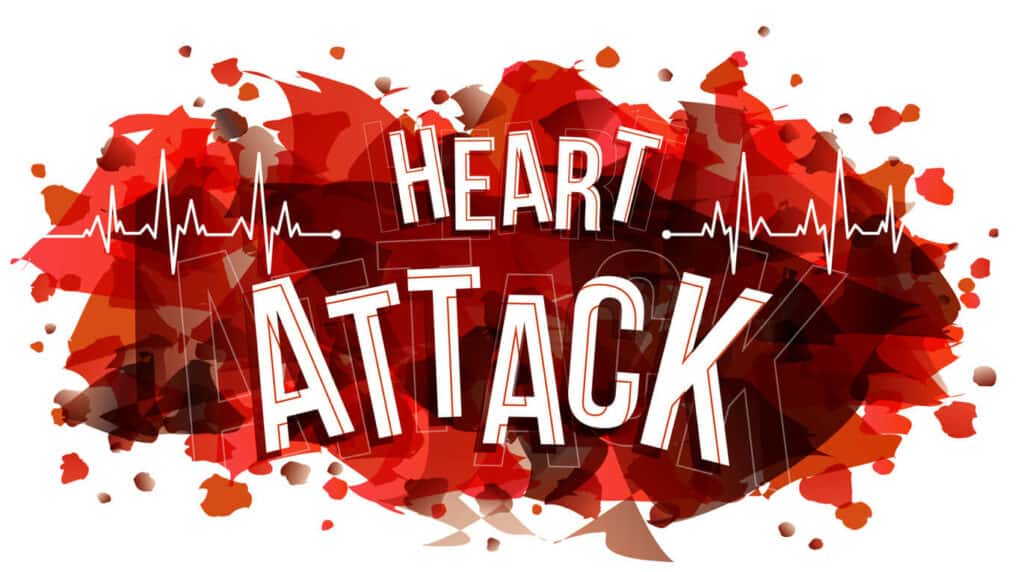
It’s important to recognize the signs and symptoms of different types of cardiac conditions to seek prompt medical attention when needed.
In this table, we compare the signs and symptoms of different types of heart attacks:
| Type | Causes | Signs & Symptoms |
|---|---|---|
| STEMI Heart Attack | Complete blockage of a coronary artery hindering blood supply to most of the heart muscle |
|
| NSTEMI Heart Attack | Partial or incomplete blockage of the coronary artery |
|
| Demand Ischemia | No blockage but the heart’s blood demands exceed the supply |
|
| Coronary Artery Spasm (also called unstable angina or silent heart attack) | Temporary constriction/spasm of a coronary artery causing the reduced blood supply to the heart |
|
| Cardiac Arrest | The heart stops beating and pumping blood |
|
How To Respond When Your Loved One Is Having A Heart Attack
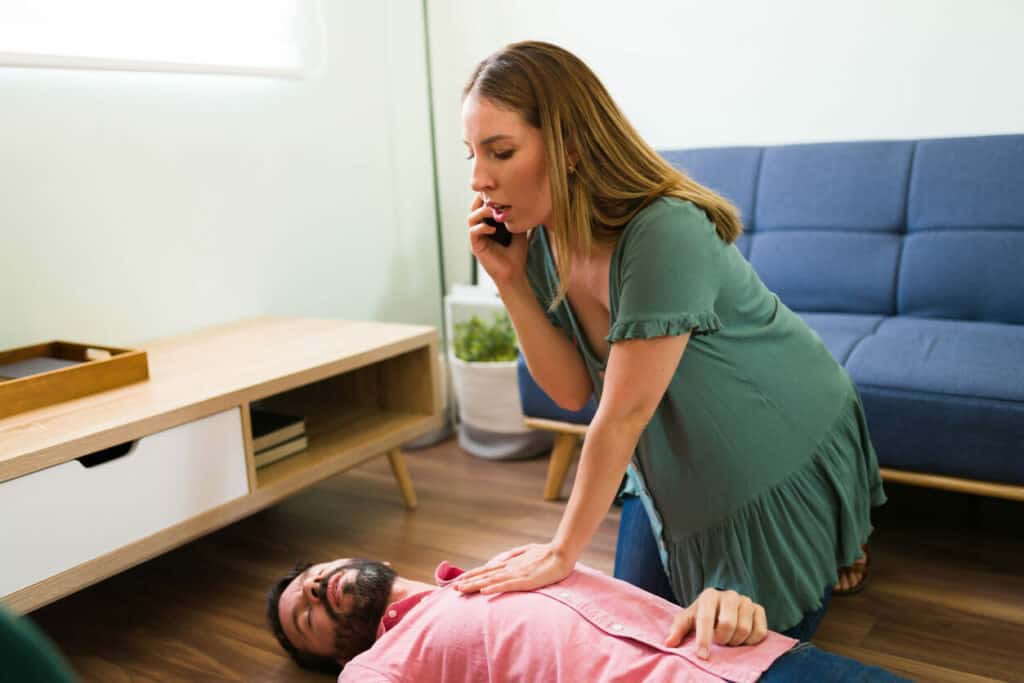
A heart attack is a serious medical emergency that calls for immediate medical attention. If your loved one experiences a heart attack, it can be a shocking and frightening time. You might panic but knowing how to respond can help save their life.
Here are a few steps that you must take to respond when someone around you is having a heart attack:
- Call 911 immediately: This is the most important step you can take when someone near you is having a heart attack. Every minute counts in saving someone’s life during a heart attack. Call EMS (Emergency Medical Services) as soon as you realize that your loved one is exhibiting any symptoms of a heart attack, so they will get them medical attention as soon as possible.
- Help the person rest in a comfortable position: Have the person rest in a comfortable position and try to keep them calm. Reassure them that EMS help is on the way. The most comfortable position that eases the strain on the heart is to have them sit on the floor while leaning against a wall or support. It also reduces the risk of falls if they collapse.
- Give Aspirin: If the person is conscious, give them aspirin to chew slowly. Aspirin is a blood thinner and it can reduce the risk of further damage to the heart. Avoid Aspirin if the person is allergic to it or you are unaware of the person’s medical history.
- Monitor their vitals: Check the person’s breathing, heart rate, and blood pressure if possible until the EMS arrives. Note down any changes and report them to the medical team when they arrive.
- Don’t panic and calm down the person: It’s natural to feel scared or panicked during a medical emergency especially if it’s a loved one. Try to stay calm, and act quickly to save your loved one’s life. Your loved one will be scared too, so try to reassure them and keep them calm.
- Perform CPR only if you’re certified and it’s necessary: If your loved one stops breathing or their heart stops beating, perform CPR if you are certified. However, if you are not certified or do not feel confident in your ability to perform CPR, avoid doing it and wait for the medical professionals to come.
Remember, the most important thing you can do during a heart attack is to call 911 immediately. Do not waste time panicking or trying home remedies. By knowing how to respond in the right way, you can help save their life.
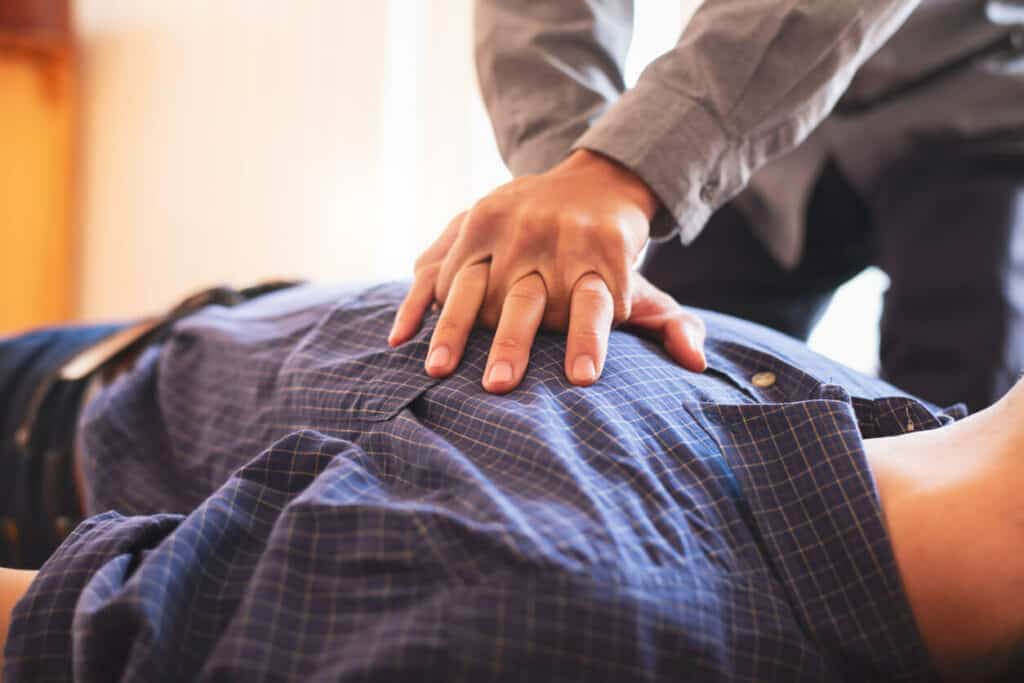
Can A Heart Attack Be Prevented?
While it’s not always possible to prevent a heart attack, there are steps you or your loved one can take to reduce your risk. Adopting a healthy lifestyle, such as:
- Eating a balanced diet
- Exercising regularly, and
- Avoiding smoking and excessive alcohol consumption
…can help reduce your risk of developing heart disease and experiencing a heart attack.
It’s also important to manage any underlying health conditions, such as high blood pressure, high cholesterol, and diabetes, as these can increase your risk of heart disease. Regular check-ups with your doctor and following their advice can also help in preventing heart attacks.
With a proactive approach to heart health and following prevention strategies, you can reduce your risk of heart attack and improve your overall well-being.
Conclusion
A heart attack can manifest in a variety of ways and its signs and symptoms can vary from person to person. Although there are some common signs and symptoms that are clearly recognizable, certain silent signs go unrecognized until it’s too late to save the person.
If you or your loved one experiences any of these symptoms, seek medical help right away to improve your chances of recovery and survival. Staying informed about what a heart attack looks like and taking action immediately will help you save your loved ones and yourself.
If your elderly loved one has suffered a heart attack, they might need some extra care and assistance to recover and get back on their feet. At Amy’s Eden, we provide professional and trained senior caregivers who will make sure your loved one is taken care of in the best possible way.
Contact us today to see how we can assist your senior relative with personal care and recovery from their heart attack.

